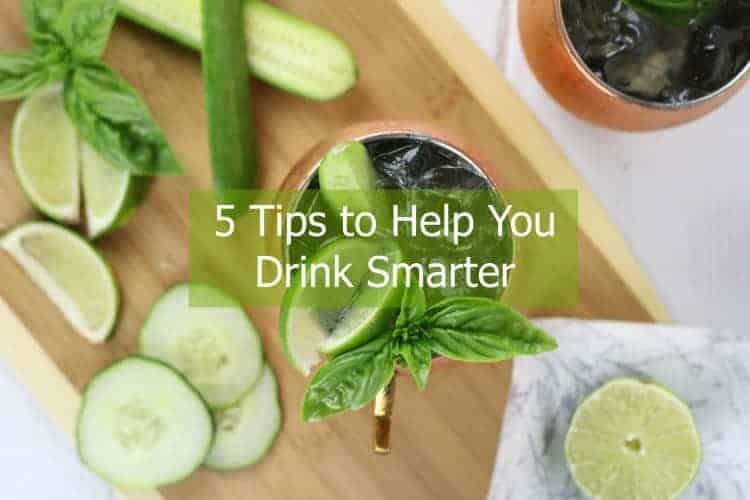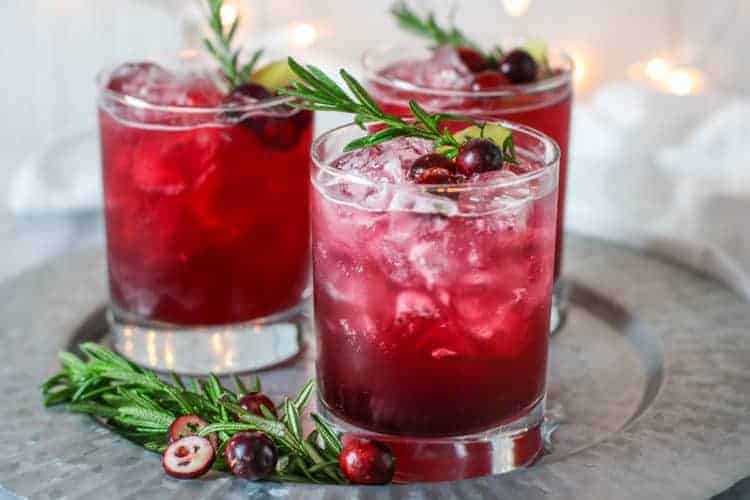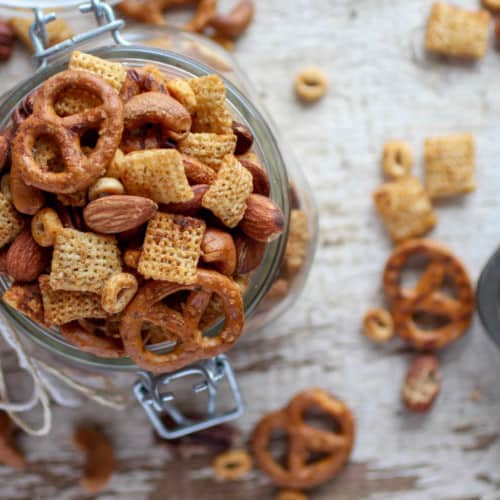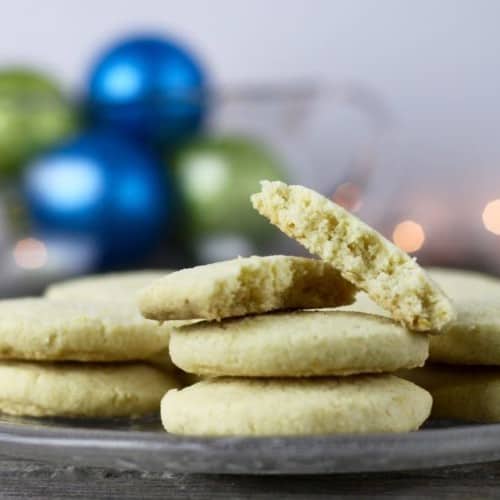
Want to save this page?
Enter your email below & we’ll send it straight to your inbox. Plus you’ll get great new recipes from us every week!
Alcohol, when consumed responsibly and within reason, can be part of a healthy diet.
That probably isn’t news to you since that’s the message we’ve been getting from public health figures and media for decades, to drink responsibly. We can totally agree with that but what does ‘drink responsibly’ really mean for those of us aspiring to live a healthy life and perform our best in the gym and in our daily lives?
How much is too much and which drinks are best? How can I enjoy a drink but still stick to my health goals?
Those are questions we get on a regular basis so today we’re sharing our top 5 tips to help you drink smarter and to help you make the best choices when it comes to your health. They’re the exact same rules we follow every time we pick up a glass and it’s the same advice we share with our clients. They’re not rocket science, just good old common sense for the most part – with a little nutrition geekiness thrown in for good measure.
First of all…To drink or not to drink?
Whether or not you choose to imbibe in a glass of wine or a cocktail is a completely personal choice. Don’t ever let anyone make you feel like you have to have a drink because you don’t. You’re still one of the cool kids as far as we’re concerned.
The reason we bring that up isn’t to sound like your high school gym coach or health teacher but rather to say that we get it. We both find ourselves in positions from time to time when we know that consuming a glass of wine isn’t really going to jive with our health goals. Or we’re on a Whole30. Or we feel like we’re coming down with something. Or we’re just don’t want to. We never feel like we owe anyone an explanation for not drinking and you shouldn’t either. It’s your body and your choice.
That said, before you decide to indulge, take a moment to consider your overall health goals – are you an athlete? trying to lose weight? suffering from an autoimmune disease or leaky gut? etc. Consuming alcohol will undoubtedly decrease your athletic performance the next day, interfere with your ability to lose weight and may worsen certain medical conditions – in which case, you have to ask yourself, “Is it worth it right now?”
If you decide that the health/performance consequences outweigh the benefits, then good on you. Way to listen to your body and do what’s best for it. Celebrate your decision and the occasion by treating yourself to a glass of sparkling water with lime or berries or our Sparkling Cranberry Kombucha Mocktail instead.

This may go without saying but some other reasons not to consume alcohol include¹:
- You have have been diagnosed with alcoholism or have a strong family history or alcoholism,
- You have liver or pancreatic disease,
- You are pregnant or trying to get pregnant,
- You take prescription or OTC medications that may interact with alcohol,
- You have a history of heart failure or hemorrhagic stroke (a broken or leaky blood vessel in the brain)
Obviously, we can’t tell you whether or not drinking is a good idea for you – that’s something only you can decide for yourself. We’re just here to share our 5 tips to help you drink smarter. But first…
Let’s all get on the same page before we raise our glass
What is a drink? A standard ‘drink’ is defined as 12 ounces of beer (5% Alcohol by Volume or ABV), 5 ounces of wine (12% ABV), 8 ounces of malt liquor (7% ABV) or 1.5 ounces of 80-proof spirits such as whiskey, rum, vodka, tequila, etc. (40% ABV)².
How much can I drink? According to the Dietary Guidelines for Americans³ , moderate intake of alcohol is defined as up to one drink per day for women and up to two drinks per day for men. This level of intake may confer some health benefits when taken as part of a healthy diet (read: a healthy diet + regular exercise) however, it is not encouraged that you start drinking if you don’t already drink in order to reap the potential health benefits. How much you can drink without experiencing adverse reactions is also dependent on your age, gender, ethnicity, weight, fitness level, family history and use of prescription medications.
Now that we’re all on the same page, let’s talk logistics. This is how we work our cocktail game in order to make it part of our overall healthy lifestyle.
5 Tips to Help You Drink Smarter
- Food First/Always with food – Eating food before or, preferably with, your drink will help slow the rate at which the alcohol is absorbed into the blood stream thus minimizing or slowing the intoxicating effects of the alcohol. We always aim to have a meal or snack that contains protein and fat – with some carbohydrates (not too many though as there are usually plenty in the drinks). Nuts, cheese, a lettuce-wrapped burger, salami, olives, salad with chicken or fish and avocado are all good options.
- Plan ahead – Decide ahead of time how many drinks you’ll consume and stick to your plan. This can sometimes be hard when you’re in the moment and feeling good so before you pour that second glass or agree to another round, take a minute to remind yourself of your health goals. Will having another set you back a step or two? If you said ‘yes’ to this question then commit to your predetermined limit and honor thy body. Switch to bubbly water with a twist of lemon or another low-sugar, non-alcoholic beverage. There will be plenty more drinks in your future, no need to have them all in one day.
- Include a ‘spacer’ if you’re having more than one drink – A ‘spacer’ is a non-alcoholic (and preferably low-sugar) beverage that you consume between drinks that contain alcohol. The idea is that you stay hydrated (because alcohol is dehydrating) and you slow yourself down so that you don’t become intoxicated and thus have to deal with the consequences of such. Nobody likes a hangover.
- Make it a spritzer – If you’re a wine drinker, try adding carbonated water (without added sugar) to your glass of wine. Not only does this help keep you hydrated, it also means you can pour a second glass without going overboard.
- Choose low sugar or low carb beverages and cocktails– The best choices include dry white wine or champagne, red wine, tequila or vodka. Apple ciders that are ‘dry’ and contain less than 10g of sugar per 12 fl. oz. serving can also be a good choice. Just be sure to pass on the wine coolers, spiked lemonades, bottled margaritas and other drinks with loads of sugar – and don’t forget to skip the sugary mixers, too. Just say ‘No’ to soda, diet soda, syrups, and energy drinks and instead opt for club soda and lime or a splash of fruit juice or coconut water or take it ‘on the rocks’ and sip slowly (No shots – that’s just asking for trouble).
A word about sugar and carbs when it comes to drinking: Sugar and carbs (both naturally occurring and added) will cause your blood sugar to spike. You pancreas, doing it’s job to save you from a high blood sugar crisis, will release insulin in order to lower these levels which results in somewhat of a crash. This blood sugar crash is what makes you irritable and hungry and often leads to cravings for foods you wouldn’t otherwise eat (can you say Taco Bell drive-thru, greasy delivery pizza or big stacks of pancakes with apricot syrup at Perkins!?) Having a meal or snack before, or with, your drinks like we mentioned above can help mitigate the effects of alcohol on your blood sugar.
So there you have it, our top 5 tips to help you drink smarter!
Looking for some healthy drink inspiration? Try one of these Real Food Dietitian-approved cocktails:
What’s your drink smarter game plan? How do handle “C’mon, just have a drink!” situations? We’d love to hear how you balance alcohol intake and healthy lifestyle in the comments below.
References
- Staff, M. C. (2016). Nutrition and healthy eating alcohol: If you drink, keep it moderate. Mayoclinic. Retrieved from http://www.mayoclinic.org/healthy-lifestyle/nutrition-and-healthy-eating/in-depth/alcohol/art-20044551
- Frequently Asked Questions. (2016, October 18). Retrieved December 07, 2016, from http://www.cdc.gov/alcohol/faqs.htm
- Dietary Guidelines 2015-2020: Chapter 1 key elements of healthy eating patterns. Retrieved December 7, 2016, from Dietary Guidelines 2015-2020, https://health.gov/dietaryguidelines/2015/guidelines/chapter-1/key-recommendations/


I like that you talked about how there are cocktails you can make without using too much sugar. I have been looking for a new drink to make this weekend. I can see how it would be smart to choose a drink with less sugar because I have already had too much sugar this week.